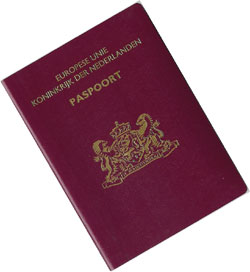 Municipalities can only charge fees for personal services and responding to a freedom of information request is not such a service because it serves a common good.
Municipalities can only charge fees for personal services and responding to a freedom of information request is not such a service because it serves a common good.
That is the conclusion the Dutch Supreme Court reached yesterday.
In the past years municipalities often charged considerable fees for dealing with freedom of information requests in order to derail the process. RTL Nieuws refused to pay these fees and was sued by several local governments in reponse. According to De Nieuwe Reporter the municipality of Landgraaf lost its case, but Leerdam won. The Supreme Court was asked to provide clarity.
Municipalities can still charge fees for the form in which it responds to a freedom of information request (WOB-verzoek in Dutch), i.e. for photocopies and such. The Supreme Court made a point of mentioning this even though nobody had contested the issue.
Reporter Brenno de Winter sees the verdict as a starting point to get his money back: “It took me hundreds of hours to get rid of these fees. This lost time represents a lot of money to a freelancer like me. I am going to ask back fees that I had already paid and charge the municipalities for the time I lost. […] I am also studying options to criminally charge four civil servants because they threatened me with costs [of up to 30,000 euro] if I were to persevere with my information requests.”
De Winter was declared Journalist of the Year 2011 by the Dutch Association of Journalists NVJ because of his scoops concerning the bad security of both the OV transport card and government websites.
(Photo of journalist Brenno de Winter by Roy van Ingen, some rights reserved)

 As of late, many journalists have turned finding out how badly privacy is protected by government institutions into a kind of sport.
As of late, many journalists have turned finding out how badly privacy is protected by government institutions into a kind of sport.  Eight months ago the city of The Hague refused to provide Louise van Luijk with a passport, even though as a Dutch citizen she has the right to one. Last Monday (
Eight months ago the city of The Hague refused to provide Louise van Luijk with a passport, even though as a Dutch citizen she has the right to one. Last Monday ( When a postman from Rotterdam warned his customers about fake Chamber of Commerce bills following a recent spate of them, he got fired by his employer Sandd,
When a postman from Rotterdam warned his customers about fake Chamber of Commerce bills following a recent spate of them, he got fired by his employer Sandd,